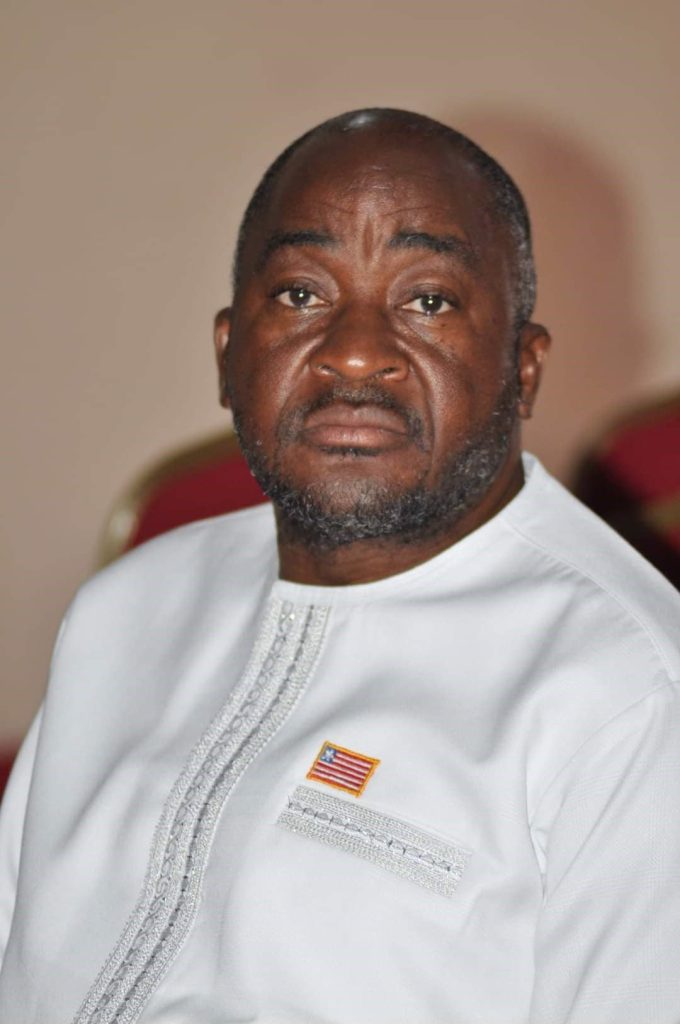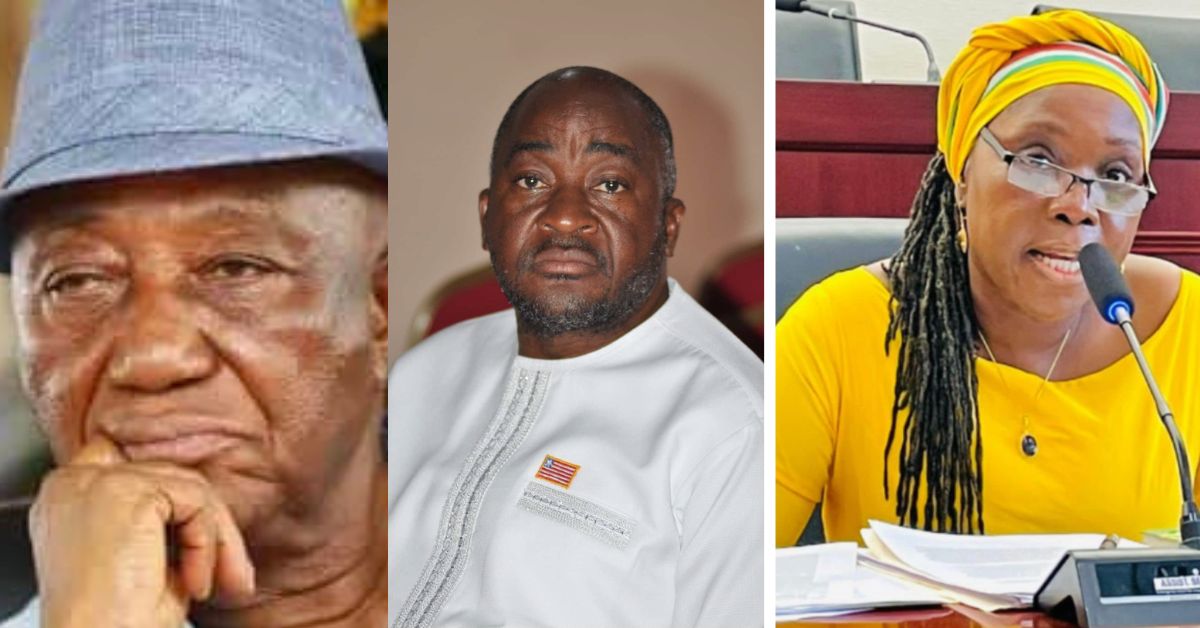SINCE THE ANNOUNCEMENT of the appointment of Liberia’s former Foreign Minister D. Maxwell Saah Kemayah by the ECOWAS Commission as its Resident Representative to Sierra Leone, President Joseph Nyuma Boakai Sr administration has been adamant about having him replaced with their own person of interest. This has led to official exchanges of diplomatic notes between the Liberian government and the ECOWAS Commission. However, a reliable source has it that the request of the Boakai administration to the Commission to replace the former Foreign Minister Kamayah has been outrightly rubbished; something the Press Secretary to President Boakai failed to acknowledge even though she admitted that the Commission did communicate their rejection to the request of President Boakai.
LIBERIA PLAYED A PIVOTAL ROLE in the formation of ECOWAS. As one of the founding members, Liberia was instrumental in advocating for regional cooperation and economic integration among West African countries. Liberia, alongside Nigeria, Togo, and other key players, actively participated in the discussions and negotiations that led to the establishment of ECOWAS in 1975. Liberia’s commitment to the principles of collective economic development and political stability helped shape the organization’s foundational objectives and policies aimed at fostering economic growth, social progress, and cultural integration in the West African region. This is why the Boakai’s leadership missteps on this diplomatic front pose a gross embarrassment for the country in view of the perceived naivety of the move.

ON THE HOME FRONT, the move of the Boakai’s leadership to circumvent the appointment of the former Foreign Minister Kamayah didn’t come as a surprise. President Boakai’s Unity Party government has shown deep disdain and contempt for anyone associated with the past administration of former President George M. Weah. The new administration has exercised sweeping dismissals across all government sectors, expressly targeting those classified as members of the Congress for Democratic Change (CDC). These dismissals or suspensions were extended to tenured positions despite a ruling from the Supreme Court against them. The past administration decried these dismissals as mere political witch-hunts and blatant violations of the rule of law.
AS FORMER FOREIGN MINISTER Kamayah takes on his assignment as Resident Representative of the ECOWAS Commission, a role that is not under the jurisdiction of the Liberian Government, and which has nothing to do with directly representing Liberia on a foreign mission or assignment. What can Liberia learn from this embarrassing mistake? What do we know about this role going forward? What can Liberia’s current Foreign Minister and President Boakai’s advisers learn going forward that they didn’t take the time to understand as a responsible government?
THE FACT IS CLEAR, the Economic Community of West African States (ECOWAS) appoints Resident Representatives to ensure effective communication, coordination, and implementation of its policies and programs within member states. This position is pivotal for fostering regional integration and cooperation among West African nations.
SELECTION PROCESS
Resident Representatives are typically selected by the ECOWAS Commission, which is the executive arm of the organization. The selection process involves:
- Nomination: Potential candidates are nominated by member states (not always necessary or compulsory, but out of curtesy) or identified by the ECOWAS Commission based on their expertise and experience in diplomacy, international relations, or related fields.
- Assessment: Nominees undergo a thorough vetting process, which includes evaluating their professional background, understanding of ECOWAS policies, and ability to effectively represent the organization.
- Appointment: Following the assessment, successful candidates are formally appointed by the ECOWAS Commission. Their appointment is usually for a fixed term, which can be renewed based on performance and the needs of the organization.
ROLES AND RESPONSIBILITIES
The primary roles and responsibilities of Resident Representatives include:
- Liaison: Act as a bridge between the ECOWAS Commission and the host country’s government, ensuring smooth communication and implementation of ECOWAS decisions.
- Policy Implementation: Oversee the execution of ECOWAS policies, programs, and projects within the host country, ensuring they align with the regional goals of economic integration and development.
- Monitoring and Reporting: Monitor the political, economic, and social developments in the host country and report back to the ECOWAS Commission. This includes providing insights and recommendations to address any challenges or opportunities.
- Representation: Represent ECOWAS in various forums and meetings within the host country, advocating for the organization’s interests and objectives.
- Conflict Resolution: Play a role in mediating and resolving conflicts within the host country, particularly those that may affect regional stability and integration efforts.
PRESIDENT BOAKAI should reassess the individuals he has around him as advisors. The multiplicity leadership errors is eroding public confidence and understanding the concept that he comes to the presidency with vast amounts of public service and leadership experience. So far, much of his leadership decisions has been false starts, and it is becoming clear that decisions are more guided by campaign imagination and political power-showing, than governing from a position of vibrant leadership. So, it will do President Boakai’s administration and the people of Liberia well, if his administration focus on strengthening the fragile foreign missions of Liberia, than chasing after political-payback. The Resident Representatives of ECOWAS are employees of the Commission crucial for maintaining effective communication and ensuring the implementation of ECOWAS policies within member states (ECOWAS, 2021).
They act as a bridge between the ECOWAS Commission and national governments, playing a vital role in regional integration and conflict prevention (Afolabi, 2018; ECOWAS, 2021). Accept this fact and move on.
Interested in further reading on the subject? See the references below:
1. Afolabi, O. (2018). “The Role of ECOWAS in Promoting Regional Integration in West Africa”. Lagos: West African Institute for Regional Studies.
2. ECOWAS. (2021). “Resident Representatives Manual”. Abuja: ECOWAS Commission.
3. Ihedioha, I. (2019). “Diplomatic Practices in West Africa: The Role of ECOWAS”. Accra: University of Ghana Press.
4. Ojo, E. (2020). “ECOWAS and Conflict Resolution in West Africa”. Dakar: Sahel Publishing.
5. ECOWAS. (2021). “Annual Report on Regional Integration”. Abuja: ECOWAS Commission. 6. Nwankwo, C. (2022). “Challenges and Prospects of ECOWAS Integration”. Ibadan: Spectrum Books.

Dr. Clarence R. Pearson, Sr. is a Liberian clergy and social scientist with strong interest in advancing global peace, human rights, a safe planet, and social equity. He holds a BA in Theology, and MA with distinction from the Kofi Annan Institute for Conflict Transformation, University of Liberia. He also graduated with honor from the Louisiana Baptist University and Seminary, Shreveport, Louisiana, USA with A PhD in Psychology and Counseling. Dr. Pearson is a social researcher, an educator, and an author. He has over 29 years of practical professional experience in post-conflict peace-building, recovery, and development with emphasis in both the public and private sector.

